Campus & Community
-
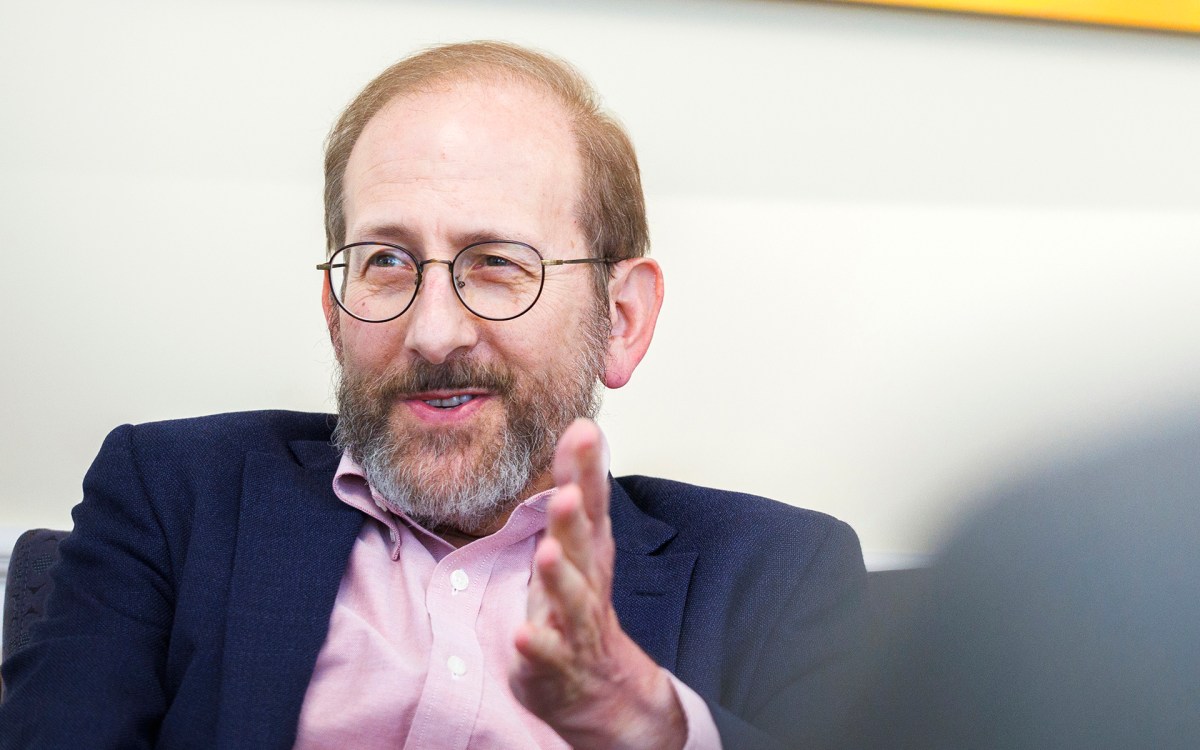
Garber to lead Harvard beyond 2026-27 academic year
‘Our progress has made me prouder than ever to be part of the University — and determined to see us through this uniquely challenging period in our long history.’
-
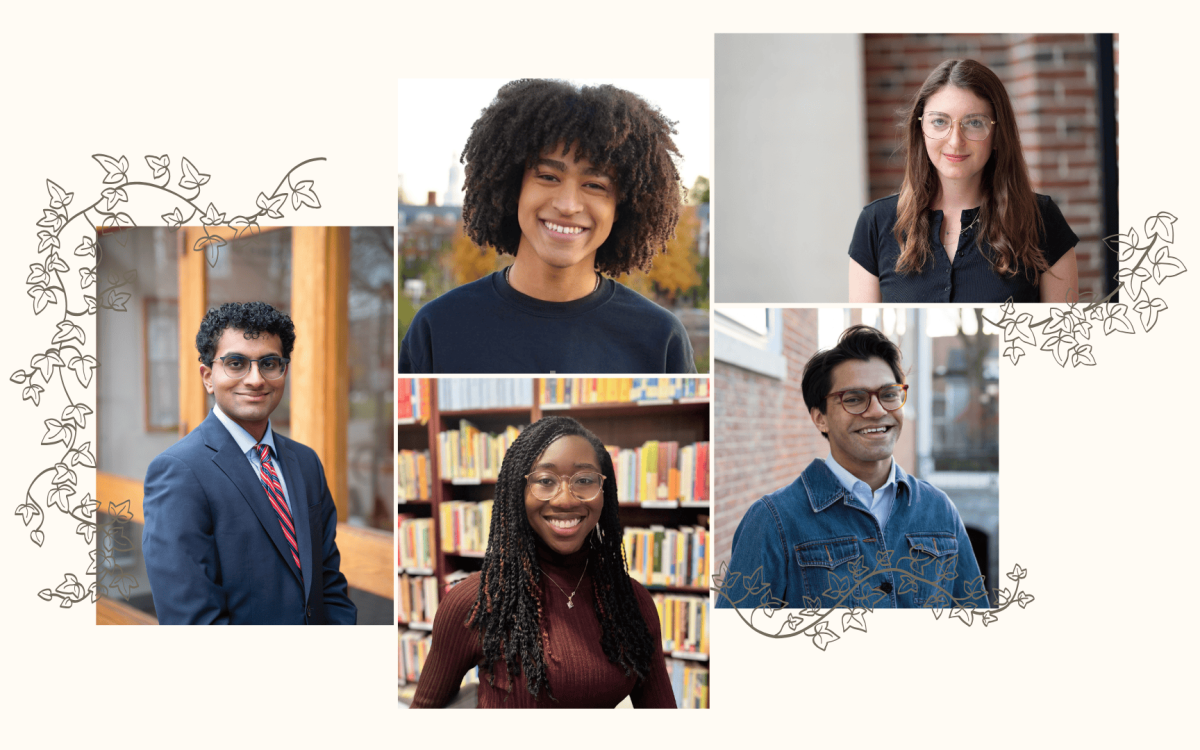
5 from Harvard named Marshall Scholars
Awards for 4 students, 1 alumna — more than any other institution — support graduate studies in the United Kingdom
-
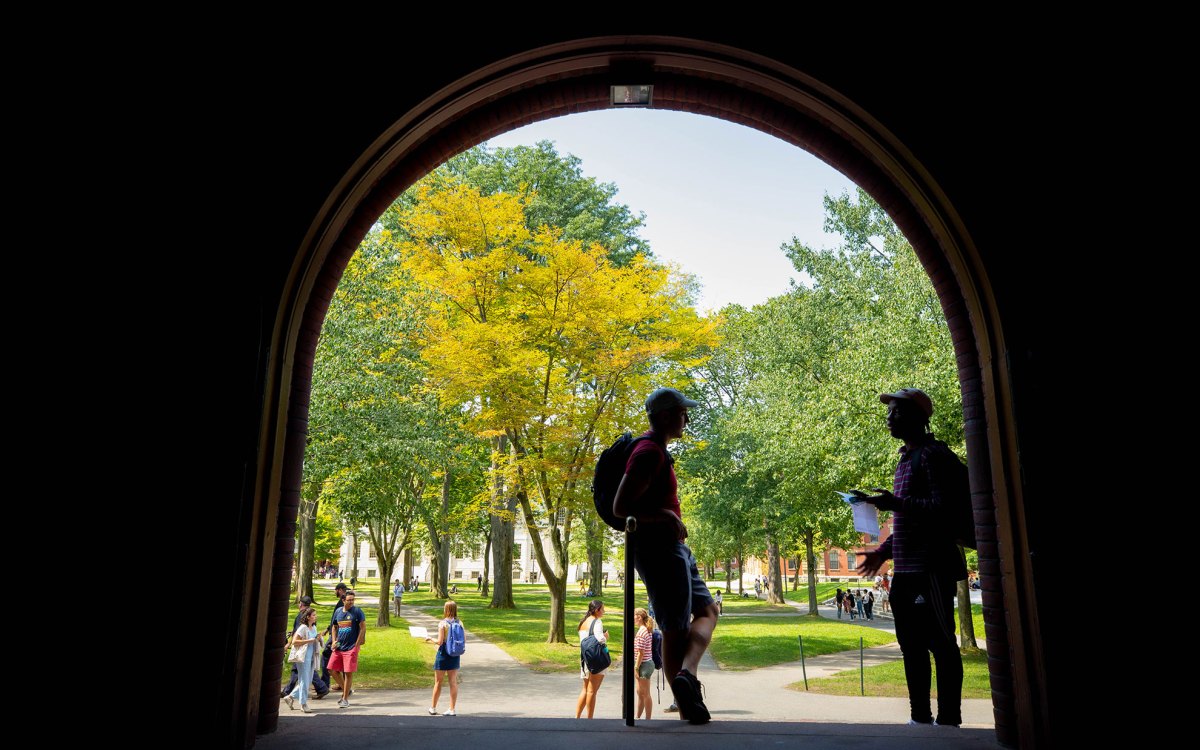
‘Our students are seeking not just to coexist, but to understand’
8 projects win Building Bridges grants to spark constructive dialogue on campus
-
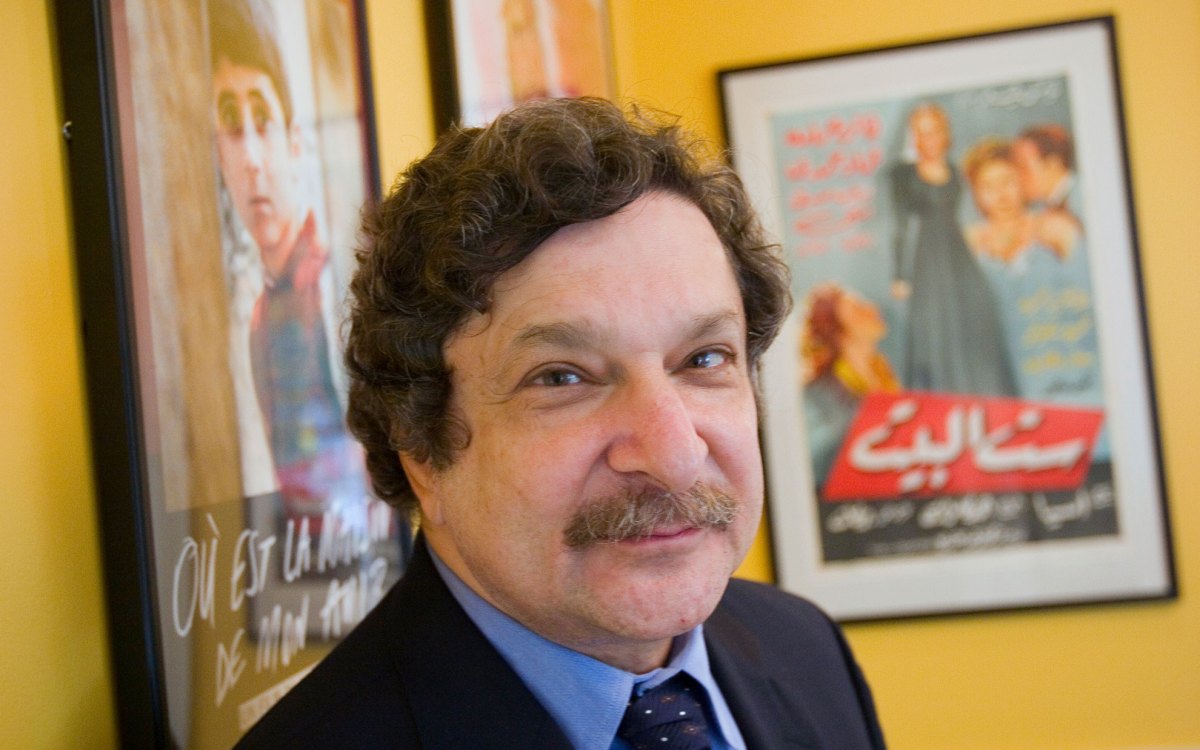
Roy Parviz Mottahedeh, 84
At a meeting of the Faculty of Arts and Sciences on Dec. 2, 2025, the following tribute to the life and service of the late Roy Parviz Mottahedeh was spread upon the permanent records of the Faculty.
-
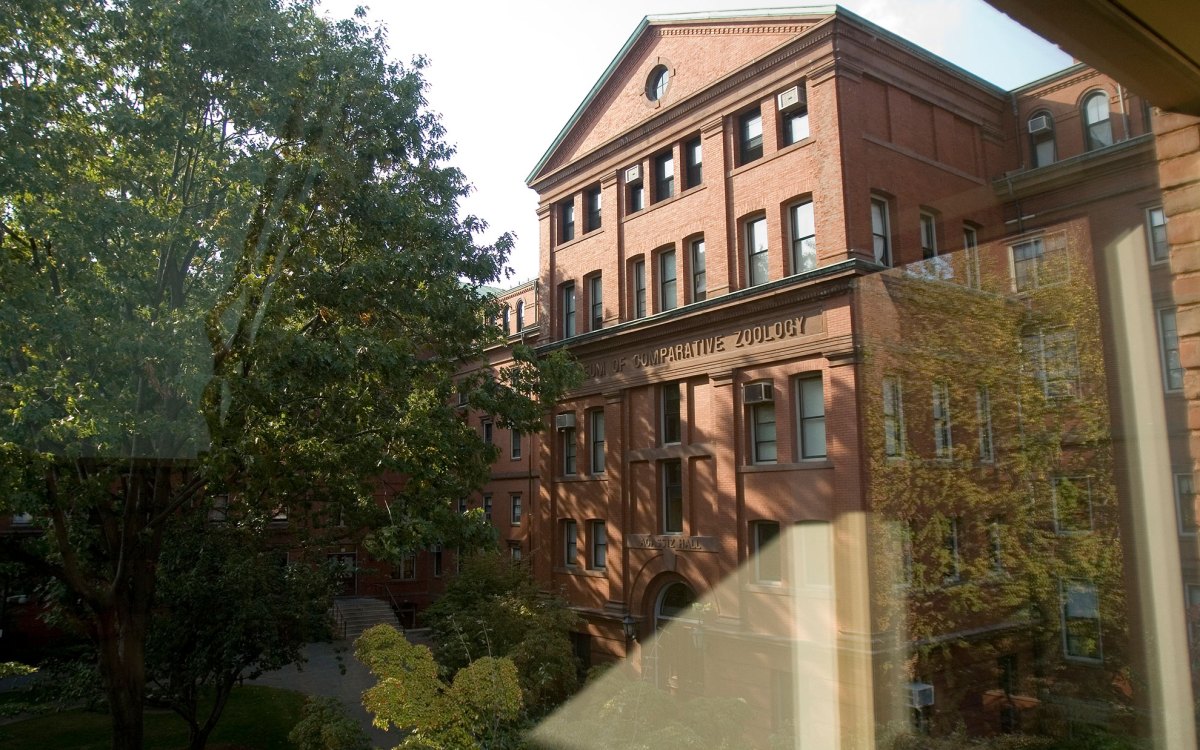
Karel Frederik Liem, 73
At a meeting of the Faculty of Arts and Sciences on Dec. 2, 2025, the following tribute to the life and service of the late Karel Frederik Liem was spread upon the permanent records of the Faculty.
-

‘Goodnight, sweet prince’
New holiday film reimagines couple’s searing grief over death of young son, how it inspired creation of ‘Hamlet’
-
Milton Fund deadline Oct. 15
Voting faculty from all of Harvard’s Schools and the Junior Fellows of the Society of Fellows are eligible to apply for grants from the Milton Fund, which supports original research by Harvard faculty. Milton grants have enabled hundreds of Harvard faculty, particularly assistant professors, to explore new ideas and launch innovative projects, often shaping lifelong investigative interests and scientific collaborations.
-
Miles named HGSE senior associate dean for Development
Lynn Miles will become the Harvard Graduate School of Education (HGSE) senior associate dean for Development and Alumni Relations, effective Oct. 1. As former assistant vice president for resources, director of the Leadership Gift Program, and most recently, acting vice president for resources at Wellesley College, Miles’ distinguished career in development includes playing a key role in designing and executing a highly successful campaign that raised $472.3 million — a record for liberal arts colleges.
-
Spend an ‘Evening with Champions’ Oct. 10-11
Top world skaters will skate for a cause this weekend (Oct. 10-11) when they gather at Bright Hockey Center for the Jimmy Fund’s annual “An Evening with Champions.” Hosted by 1992 Olympic silver medalist Paul Wylie ’90, the event has raised more than $2.4 million for the Jimmy Fund, which supports adult and pediatric cancer research and care at the Dana-Farber Cancer Institute.
-
This month in Harvard history
Oct. 14, 1763 — At the College library in Old Harvard Hall, Ephraim Briggs, Class of 1764, checks out “The Christian Warfare Against the Deuill World and Flesh” by John Downame, one of several hundred books that John Harvard had bequeathed to the College in 1638.
-
GSD students develop innovative plan for local school for deaf
Stricken with scarlet fever as a young boy, David Wright grew up in a silent world. In his moving autobiography, “Deafness: A Personal Account,” the South African-born author tells that story.
-
Faculty Council
At its third meeting of the year on Oct. 8, the Faculty Council discussed Dean Michael D. Smith’s upcoming letter to the Faculty and considered changes to the procedures for responding to allegations of misconduct in research. The council next meets on Oct. 29. The preliminary deadline for the Nov. 18 Faculty meeting is Nov. 3 at 9:30 a.m.
-
Dowling recipient of Paul Kayser Award
John E. Dowling, Gordon and Llura Gund Professor of Neurosciences of the Department of Molecular and Cellular Biology as well as professor of Ophthalmology in Neuroscience, recently received the Paul Kayser International Award in Retina Research from the International Society for Eye Research (ISER). He received the award at the 2008 Biennial Congress held in Beijing, in addition to presenting a plenary lecture and participating in a symposium on retinal mechanisms.
-
Giving faculty a leg up the ladder
Harvard University is launching a new initiative for ladder faculty designed to help professors meet their family caregiving needs while succeeding throughout their academic careers.
-
Belfer Center announces research fellows 2008-09
The Belfer Center for Science and International Affairs at Harvard Kennedy School announces the following new 2008-09 research fellows. These fellows conduct research within the Belfer Center’s International Security Program (ISP).
-
HUHS Office of Alcohol & Other Drug Services named prevention leader
The Harvard University Health Services (HUHS) Office of Alcohol & Other Drug Services (AODS) was named this year’s “Outstanding Leader in Prevention” by the city of Cambridge. The award recognizes the Cambridge organization/agency that has provided Cambridge with superior service in the prevention of substance abuse.
-
Program allows gifted scholars to kick back and … work
Abena Dove Osseo-Asare studies African medicinal plants, including their fate at the hands of modern science and global patent systems.
-
The pine beetle’s tale: Destructive insect has pharmaceutical potential
Researchers at Harvard Medical School and the University of Wisconsin, Madison, have discovered how beetles and bacteria form a symbiotic and mutualistic relationship — one that ultimately results in the destruction of pine forests. In addition, they’ve identified the specific molecule that drives this whole phenomenon.
-
Harvard China Fund accepting 2010 proposals
The Harvard China Fund, under the Office of the Provost, has announced its fiscal year 2010 grants program for Harvard faculty, programs, and Schools. The purpose of the fund is to support interdisciplinary research and teaching in and about China, focus Harvard’s considerable strengths toward tackling the challenges that China faces, and improve communication and collaboration between Harvard’s faculty and Schools, and Chinese universities and research institutes.
-
Al Gore to celebrate sustainability at Harvard
Former Vice President Al Gore will be coming to campus on Oct. 22 for the first-ever University-wide celebration of sustainability. The event, hosted by President Drew Faust, will mark the official launch of the University’s new greenhouse gas reduction effort and will also celebrate Harvard’s broader environmental initiatives, including the critical role the University plays in teaching and research in this area.
-
Police reports
Following are some of the incidents reported to the Harvard University Police Department (HUPD) for the week ending Sept. 29. The official log is located at 1033 Massachusetts Ave., sixth floor, and is available online at http://www.hupd.harvard.edu.
-
Harvard-Yenching Institute names doctoral fellows
Initiated in the 1960s, the Harvard-Yenching Institute’s Doctoral Scholars Program (DSP) now consists of two branches, the Harvard-DSP and Non-Harvard DSP. Each year the institute invites Harvard departments in the humanities and social sciences to nominate candidates for the Harvard doctoral scholarships. To be eligible for this program, candidates must be from Asia.
-
Sports brief
There was not enough rain to keep the women’s golf team from winning its third tournament in three appearances this season at the Fall Intercollegiate at Yale University (Sept. 27-28). Competing against elite teams from the Northeast, the Crimson placed first out of 19. Crimson top performer, junior Claire Sheldon, finished tied for fourth, shooting a 73 (+2).
-
President’s office hours 2008-09
President Drew Faust will hold office hours for students in her Massachusetts Hall office on the following dates: Thursday, Oct. 16, 4-5 p.m. Thursday, Nov. 13, 4-5 p.m. Monday, March…
-
Harvard-affiliated gene study receives NIH funding
Two Harvard Medical School (HMS) professors of ophthalmology are co-principal investigators of a gene project that has received funding by the National Institutes of Health (NIH). Lou Pasquale and Janey Wiggs, both glaucoma researchers at the Massachusetts Eye and Ear Infirmary, are leading the grant-winning team of researchers that includes Vincent L. Gregory Professor in Cancer Prevention David Hunter of the Harvard School of Public Health, and Jae Hee Kang, an instructor in medicine.
-
Milton Fund offers unique opportunities for faculty
Voting faculty from all of Harvard’s Schools are eligible to apply for grants from the Milton Fund, which supports original research by Harvard faculty.
-
Herbert C. Kelman receives IPRA Peace Award
Herbert C. Kelman, the Richard Clarke Cabot Professor of Social Ethics emeritus and co-chair of the Middle East seminar at Harvard University, has received the 2008 Peace Award from the International Peace Research Association (IPRA). The award, honoring the founders of peace research, was announced this past July at IPRA’s global conference in Leuven, Belgium.
-
Harvard, MIT, Yale presses join forces to help rebuild Iraqi National Library
Last week, more than 5,700 books were shipped from TriLiteral, the warehouse that holds inventory for Harvard University Press, The Massachusetts Institute of Technology (MIT) Press, and Yale University Press, to help replenish the Iraqi National Library. The three presses have partnered with the Sabre Foundation, whose book donation program has a long history of helping get educational materials to countries in need — often those engaged in or recovering from conflict. The Sabre Foundation (working with a grant from the United States Embassy in Baghdad) covered the logistics and shipping of the titles.
-
Theme of Ig Nobels: Redundancy redundancy
The 18th First Annual Ig Nobel winners will be showered with applause and paper airplanes at Sanders Theatre on Thursday (Oct. 2). Traveling from four continents, the 10 award recipients will be honored for achievements that “first make people laugh, and then make them think.”
-
This month in Harvard history
Oct. 17, 1640 — The Great and General Court grants Harvard the revenues of the Boston-Charlestown ferry, which plies the shortest route between Boston and Charlestown, Cambridge, Watertown, Medford, and the plantations of Middlesex County. (From Charlestown, travelers could head for Connecticut.)
-
Dental School’s Goldhaber dies at 84
Paul W. Goldhaber, dean of the Harvard School of Dental Medicine (HSDM) for 22 years, died this past July 14 from complications of pancreatic cancer. He was 84.
-
Incoming HSPH dean receives Clinton Global Citizen Award
Julio Frenk, who will become dean of the Harvard School of Public Health in January 2009, has received a Clinton Global Citizen Award. In naming Frenk, along with four other individuals, former President William J. Clinton said, “The Global Citizen Awards are about honoring and inspiring service to humanity. Our award recipients were chosen from a pool of remarkable candidates. Their innovation, dedication, and determination have changed lives, and their actions serve as models of what each of us can do to make a difference in the world.”
-
HSPH expands HIV/AIDS work in Tanzania
Nearly 150 years ago, the Tanzanian city of Dar es Salaam was known by another name — Mzizima, meaning “healthy town” in the local language. But over the decades, the city and the country of Tanzania have experienced mounting challenges to that health.
-
Lab aims to advance innovations in public education
A new education research and development laboratory at Harvard University will identify and advance strategies to improve student achievement in America’s public schools, The Eli and Edythe Broad Foundation announced Sept. 25 at the Clinton Global Initiative.
-
Translating the color code
From snail shells to bird feathers to the changing skin of a chameleon, nature uses colors in ways that range from the electric blue of a poison dart frog’s warning to the invisible ultraviolet patterns of flowers that call bees to pollinate. The development, use, and perception of color is the subject of a new exhibit at the Harvard Museum of Natural History called “Language of Color,” which opened Sept. 26 and runs until September 2009.
-
Broad Institute gets major grant for epigenomics research
Researchers at the Broad Institute of Harvard and MIT announced Sept. 30 that they have received a grant from the National Institutes of Health (NIH) to map the epigenomes of a variety of medically important cell types, including human embryonic stem cells.


